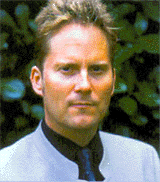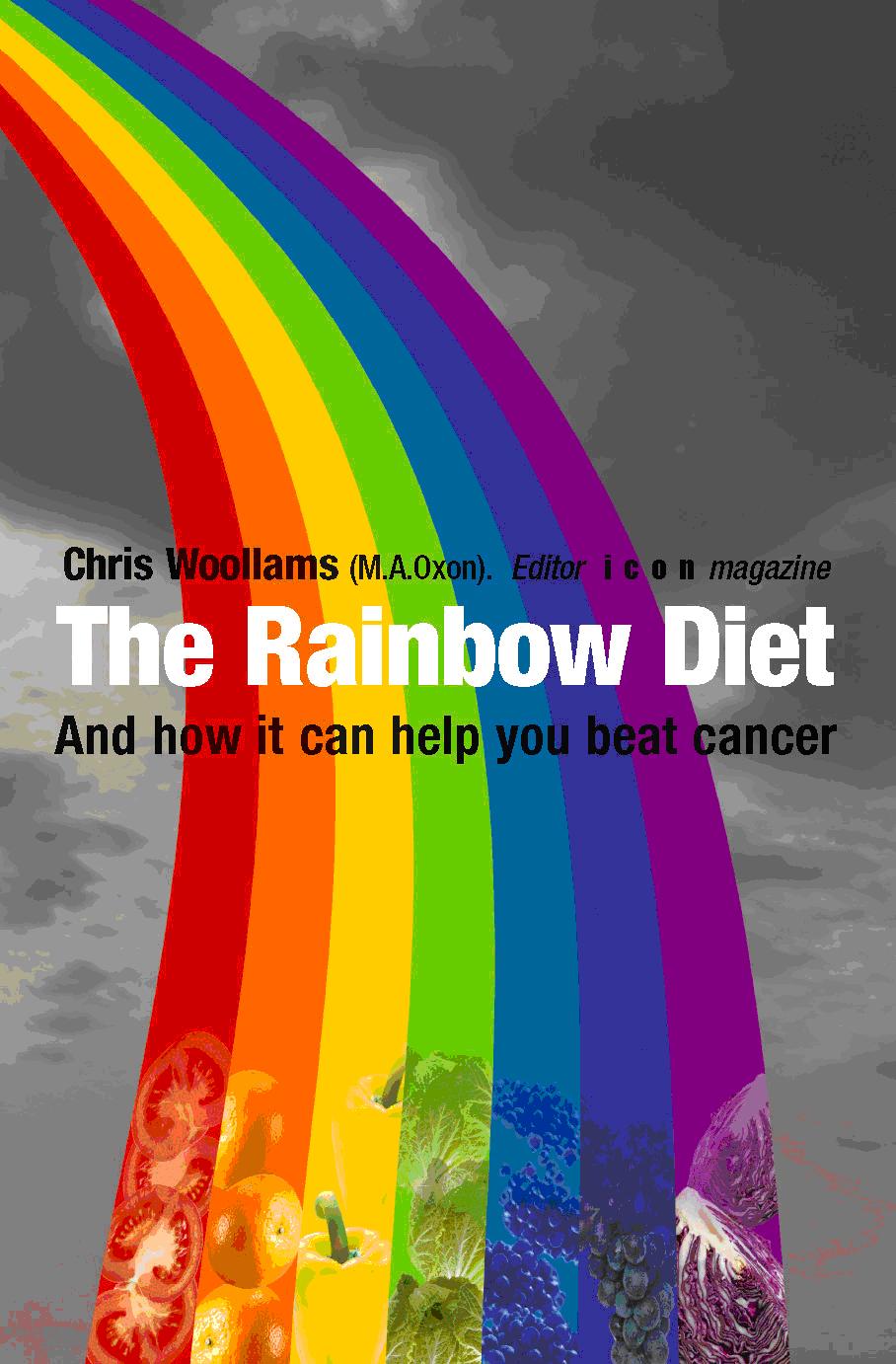Originally published in December 2002 icon

The Still Small Voice of Calm
Dr Robert Verkerk BSc, MSc, DIC, PhD was appointed Executive Director of the Alliance for Natural Health in February 2002.
Prior to this he was a post-doctoral Research Fellow at Imperial College, University of London, specialising in sustainable agriculture. He continues to maintain strong links with Imperial College and has had a long-standing interest in environmental, health and sustainabllity issues.
Rob Verkerk is a quiet, knowledgeable and extremely personable man whose wisdom belies his years. He is a doctor of the biological sciences, with a Masters degree and PhD from Imperial College, London, where he’s also done six years of postdoctoral research covering many different parts of the world.
In the early part of 2002 he teamed up with solicitor David Hinde and formed the Alliance for Natural Health, which includes top flight scientists and nutritionists in its Expert Committee, while employing lawyers, public affairs and media specialists.
The EU is proposing new laws, or directives, which are wide ranging and cover all products making health claims in any form. The European Commission wants to extend the directives to cover everything from vitamin-enriched shampoos, to cosmetics and antiperspirants, vitamins, minerals, herbs and supplements in general, including foods and health drinks.

The European Commission wants to extend the directives

There are many protestors, many petitions. "Stop Brussels robbing us of our vitamins and our fundamental right to health!" is the normal stance. Verkerk does not want to be confrontational with Brussels. He thinks the aims are right and he wants to help. But at the moment he thinks the new directives are flawed and seemingly rushed, and he feels this can only lead to greater confusion in the future or even serious black markets springing up, if the directives go through in their current forms and wording.
Rob Verkerk is quite clear in his belief that the principle of pan-European legislation is needed. In fact, getting this legislation right could benefit many of the two to three hundred million people that will make up Europe after enlargement.
He says, "Why should they care differently about a Brit than a Dane, Swede or Greek, the latter three countries having presently very restrictive legislation".
However, he also feels that crucially, "the legislators and European parliamentarians must understand that a very substantial and growing number of people in the western world are suffering from gross micro nutritional deficiencies and this is the single most important reason why cancer, stroke and heart disease are now epidemic".
Verkerk and his team not only make some very sensible points but they just might succeed where others fail.
There are three main areas of directives:
The First Directive

It will affect about 300 or so widely used ingredients including basic vitamins and minerals

The Food Supplements Directive (FSD), has already gone through in its framework form.
It will affect about 300 or so widely used ingredients including basic vitamins and minerals. These may be in their pure form, in mixtures (e.g. multivitamins) or as ingredients in other supplements.
This directive already has several foibles.
»
If a vitamin or mineral is not on the list, a proponent has 36 months to submit a full dossier with evidence supporting the argument for its inclusion. If for any reason, a manufacturer can’t or doesn’t submit a dossier for a particular ingredient, products containing that ingredient will have to be withdrawn from the market within a few years.
Preparing dossiers is a costly business and may be too costly for the small to medium companies who frequently specialise in the less common but vitally important micronutrients. Many of the common mainstream ingredients are actually manufactured by the pharmaceutical companies, and these companies have little interest in trace minerals and other less obvious micronutrients. Much data will be required and, with some data taking more than five years to accumulate, it may be too much for even medium sized companies to afford.
»
The Directive currently does not stipulate the maximum permitted levels for vitamins and minerals. These will be decided in the near future but they are likely to be set at around the RDA (Recommended Daily Allowance) levels.

The RDA concept is outdated

The RDA concept is outdated and has no scientific validity in relation to optimum nutrition. The concept was developed in 1941 in the hope of reducing the incidence of nutritional deficiency diseases such as scurvy (deficiency of vitamin C), pellagra (deficiency of niacin) and ben-ben (deficiency of B-i) in the general population. Some nutrients do not even have an RDA even though it is accepted they have a health benefit. For most the RDA is simply too low, in a world where, for example, in November the US Health Authorities produced a paper telling the population to take more supplements!
The Second Directive
The Pharmaceutical Directive
This proposes to increase the number of products falling under the current definition of a medicine, to bring in a wide variety of products making, or implicated in, health claims. In other words the EU are increasing the size of the pitch to bring in substantial number of borderline products which will include medical devices, many supplements and even some cosmetics or personal care products.
There are a number of implications here too.

Melatonin would be available only as a medicine

»
Interestingly, widening this law could see the advent of hormones like melatonin on sale in Britain. But instead of being sold as a food supplement as is the case in the US (melatonin is a hormone that occurs naturally within the body), melatonin would be available only as a medicine, sold as a sleep-aid and manufactured and distributed by pharmaceutical companies. These are the only companies with the resources to put products through a full drugs regime required under the Pharmaceutical Directive.
This is a cause for great concern as there are huge suspicions, in some cases not without some justification, that the pharmaceutical giants have financial ties with doctors, charities, health departments and even individual officials.
The judges might thus be linked to the defendants and the defendants might simultaneously massage their own data on the test without full objective scrutiny. At least, that is the objector’s argument.
Despite the scientific excellence demonstrated by the likes of Brodel, who won a Nobel Prize for his studies on the positive effects of glyconutrients in the body, all ’smart’ supplements like glyconutrients would be classif led as medicines and could not be sold as food supplements.

They would require the full-blown data dossiers as with any drug approval

Again, they would require the full-blown data dossiers as with any drug approval and so might be ’lost’ to the world if the big companies were not interested in funding the dossiers.
Despite all these commonly held fears amongst the ’conspiracy theorists’, Verkerk and the Alliance are taking a very clear, positive and refreshingly different stance on this.
Dr. Verkerk says:
"The Alliance is working co-operatively with the European Parliament, the Commission and the Council of Ministers to ensure the ready supply of innovative, safe and effective dietary supplements.
"But, at the moment, this new Pharmaceutical Directive is huge and, if allowed through in the Commission ’s currently proposed form, would effectively trump any other directive. Drugs laws could be applied to virtually any product or substance that was used to provide health benefits.
"We do not believe it is enough just to change the boundaries using the current definitions of a medicine. We require a new definition of a medicine that accurately describes a medicine; distinct from foods or food supplements, which in turn have fundamentally different modes of action when compared with medicines".
The Third Directive
The Traditional Herbal Medicinal Products Directive

They understand there are a lot of herbal products out there

The EU stance is fair and simple; basically saying that they understand there are a lot of herbal products out there, but they can’t help the fact that they are used medicinally. So the EU is saying that they will try to make life easier for traditional herbal suppliers of herbal medicines.
However, it is crucial to appreciate that this herbal directive is in fact part of the Pharmaceutical Directive, so that the herbal directive will catch different numbers of herbal products depending on the precise nature of the definition of a medicine in the final form of the legislation.
As a sop, the Commission’s proposal says that if a manufacturer can prove 30 years safe use of a product, where at least 15 of those years were in an EU member state, then they will allow the authorisation procedure to be "fast tracked" (i.e. without the need for dossiers).
A spokesman for the pharmaceutical industry recently declared that companies providing herbal remedies "should be pleased, as now they could be deemed proper medicines with the benefit of full clinical trials behind them".
Apart from the doubtful assumption that HRT is a proper medicine while Red Clover, the herb of Hippocrates, is some sort of newcomer and pretender, this statement again fails to accommodate the point that small herbal or supplement companies that might discover the future cure for AIDS in a tree bark in the Amazon jungle, just won’t have the resources to fulfil the test requirements.

Small herbal or supplement companies just won’t have the resources to fulfil the test requirements


 At Last - the definitive, research based book on how to build a diet to help beat cancer. Click here to read about it.
At Last - the definitive, research based book on how to build a diet to help beat cancer. Click here to read about it.
The overall picture needs careful reflection argues Verkerk again, taking a more considered view than most:
"We already have a health crisis in our society with huge numbers of people dying or becoming ill or disabled from either micronutrient deficiencies or the effects of pharmaceutical drugs. If we get this legislation wrong, it will become worse.
"The legislators have to realise that supplements and herbal products are many hundreds of times safer themselves than foods and thousands of times safer than the average medicine. Using a drugs regime to validate safety makes absolutely no sense. It will prevent many good products from remaining on the market, whilst innovation in the supplement industry will be stopped in its tracks".
Is the EU really giving these issues the thought they deserve? Ordinarily commissions meet and cogitate for four years or so, but with these directives the commission seems hell-bent on rushing everything through in two. Some people argue that the commission is rushing the legislation through because of the enlargement of the EU in two years time. The ten new states, mainly former communist countries are much more opposed to the pharmaceutical industry and would lobby more, probably limiting the likely financial stranglehold that seems likely if the laws go through as presently drawn up.

Consumers will definitely be the group to lose most from these changes

The final words should go to Verkerk and the Alliance.
"We totally agree that differences in national legislation between countries in Europe creates a nightmare and even allows manufacturing ’cowboys’ to operate.
"But it is consumers that will definitely be the group to lose most from these changes if they are not thoroughly thought through. If we are to have more legislation, let’s just make sure we get the new laws right or we could end up with an even bigger health crisis In generations to come."